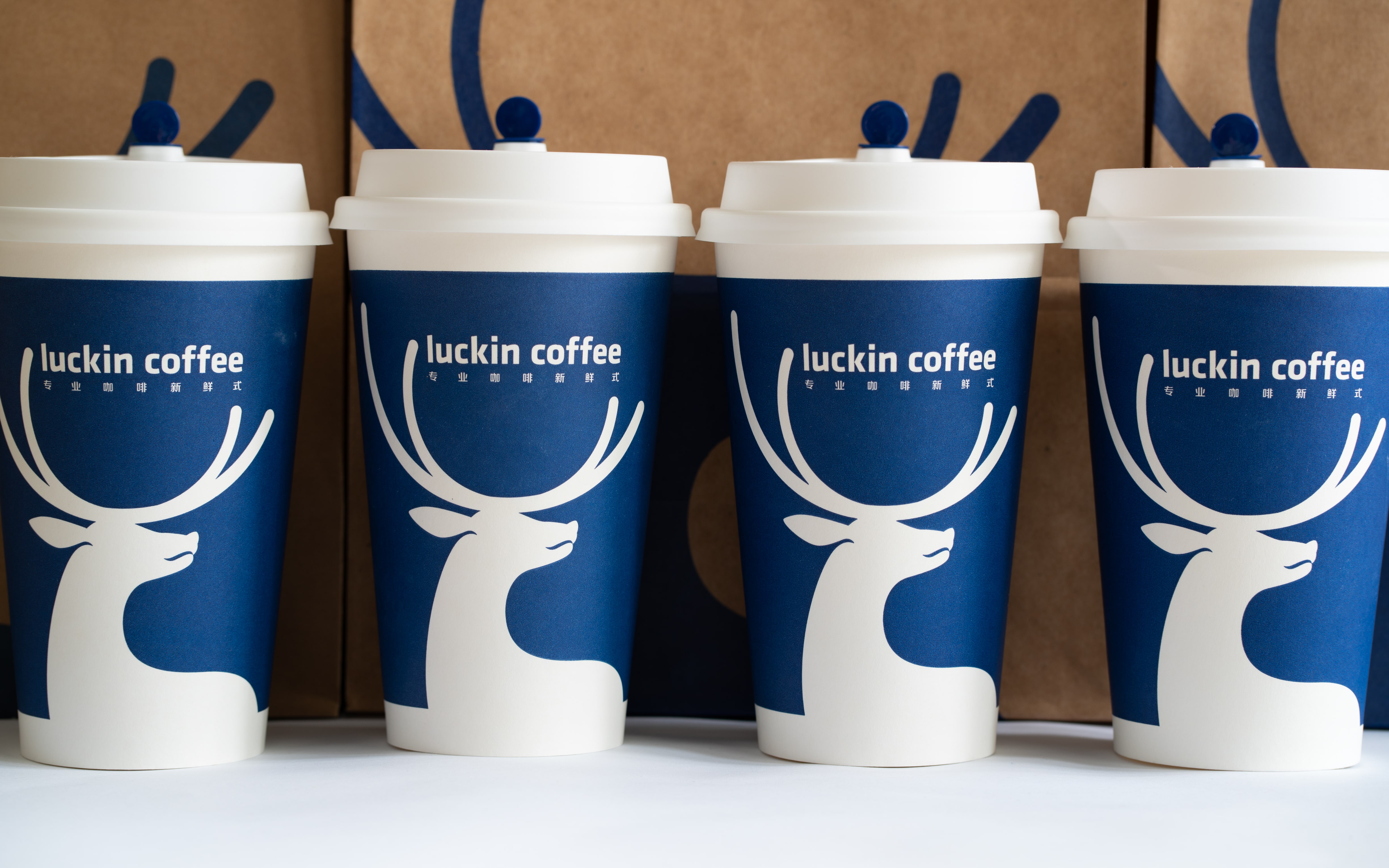
As Chinese New Year approaches on 25 January, home-grown coffee franchise Luckin has made good on CEO Qian Zhiya’s 2019 resolution to open more stores than Starbucks in China by the end of the year.
The Xiamen-based company now has more than 4,507 stores, it announced on 7 January, along with new funds to accelerate the company’s expansion.
Having launched in 2017, primarily through smaller stores and delivery kitchens, the company has followed a growth-first model. This approach led to substantial financial losses in its early days of trading, but numerous backers and a partnership with technology company Tencent in 2018 have propelled its ambitious growth strategy forward.
“Luckin Coffee’s primary advantage thus far has been its willingness to spend significant sums on building outlets across China and offering discounts on its coffee,” explains Michael Schaefer, global lead at market analysis expert Euromonitor International.
“Unlike Starbucks, Luckin Coffee’s management and shareholders have thus far been willing to tolerate significant losses as part of the brand-building process. The long-term goal is to build a durable, mid-priced brand with a first-mover advantage in China’s second and third-tier cities, where coffee consumption is still low and international brands have less presence.”
So far, the strategy appears to be working and Luckin has garnered a strong reputation among its Chinese customers as well as receiving gold medals for its coffee beans at the IIAC International Coffee Tasting Competition in 2018 and 2019.
It plans to use the $778m in new funds from an additional share sale and a convertible bond offering to launch its unmanned coffee machine and vending machines, increasing the density of its network.
“Luckin is rapidly becoming a well-recognised, on-trend and mass-market fast-moving consumer goods (FMCG) brand,” says Qian. “We will continue to grow both our traffic and products, improve brand value, expand the scale of our platform and create more value for our customers. Luckin Coffee is on track to realise our mission of being part of everyone’s life, starting with coffee.”
Healthy competition
However, with Luckin and Starbucks both fighting for majority share of the coffee market in China, and swathes of the country still largely unreached, the battle for the best brew is far from over.
Starbucks has 4,100 stores in 168 cities in mainland China, employing over 57,000 staff, according to its website. It was named a China Best Employer for 2019 by international human resources consultancy Aon Hewitt for the fifth consecutive year and is largely credited with popularising coffee in the nation, having opened its first store in the China World Trade Building, Beijing in 1999.
And yet it has also faced heavy criticism, with many likening its rapid proliferation to Western invasion. It was even forced to remove its store in Beijing’s Forbidden Palace, a site that has now been allocated to a Luckin ‘Relax’ coffee outlet.
In 2018, Starbucks formed a partnership with Alibaba Group to establish a network of delivery kitchens in a bid to compete with Luckin’s hugely successful delivery services.
Catering for all tastes
Luckin’s recent surge in stores is perhaps largely due to the size of its outlets, which are often smaller than their Starbucks counterparts and without seating, as they focus on deliveries and pickups. These understandably require less investment and a shorter build time.
Analysis from Thinknum Alternative Data also shows that Luckin has chosen to launch stores in more remote locations rather than big cities, as well as expanding into university campuses and transit hubs.
“Mapping the new locations reveals that Luckin’s latest stores tend to be in more remote areas not already serviced by Starbucks, signalling a slight departure from the coffee startup’s early strategy that looked more like a ‘block-and-tackle the opposition’ roadmap,” explains Josh Fruhlinger, publisher at Thinkum Alternative Data. “The chain is also reportedly eyeing the Middle East as a new expansion territory in 2020.”
As to the potential for further growth in the Chinese coffee market, Schaefer points out that, unlike markets such as the US and Western Europe, the vast majority of China’s coffee consumption takes place outside the home, in cafes and through takeaway locations.
“Luckin Coffee is making an enormous bet that this will remain the case, even as per-capita coffee consumption expands,” he says. “This is not necessarily unreasonable – it is by no means clear that home brewing will ever become the norm among Chinese coffee drinkers, particularly as dense outlet coverage and delivery put good-quality coffee within a click’s reach of a larger and larger proportion of Chinese consumers.”
The company is also capitalising on the much more established popularity of tea in China, having launched the Luckin Tea series in April 2019, offering customers a more traditional and leisurely tea-based experience.
Liz Cooley
